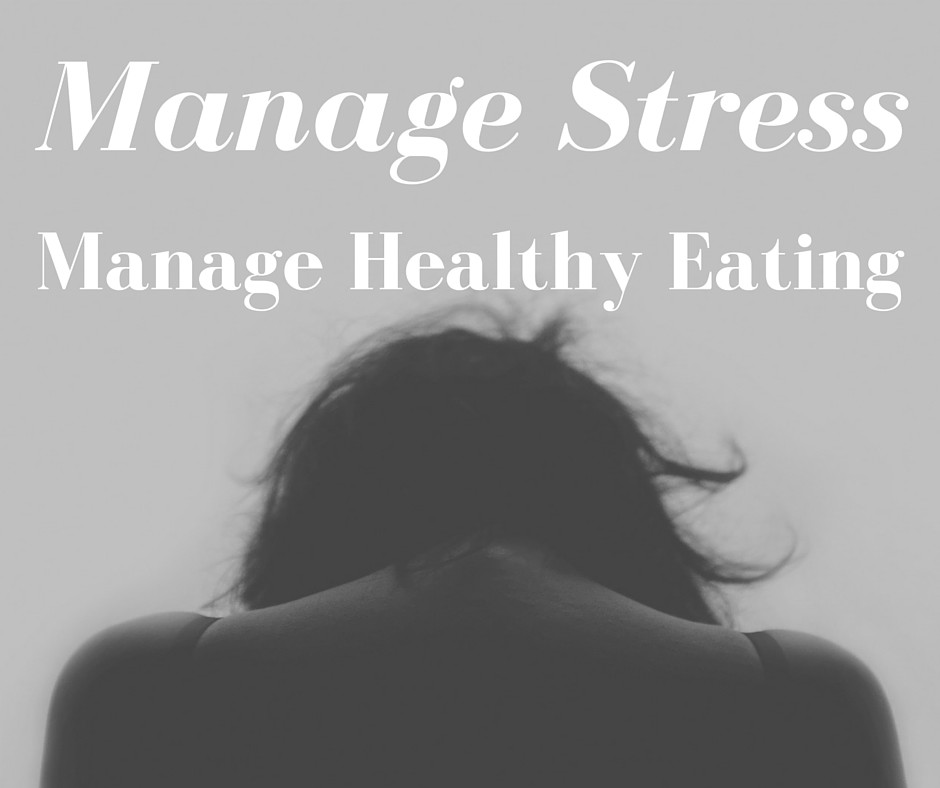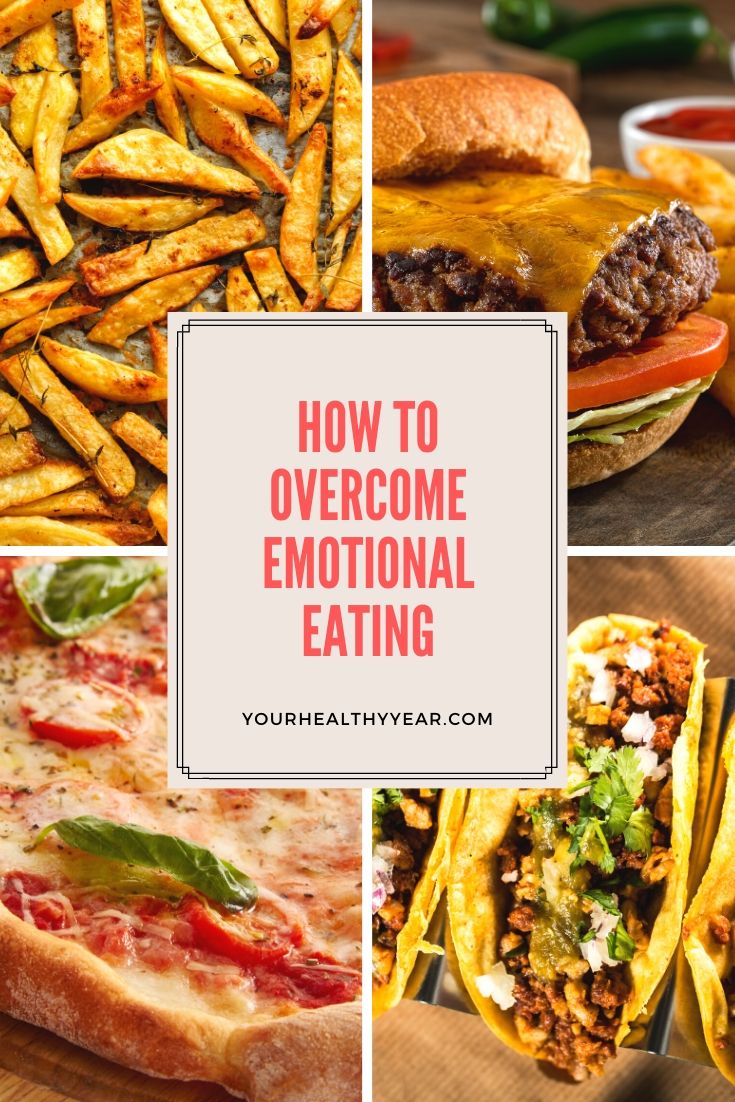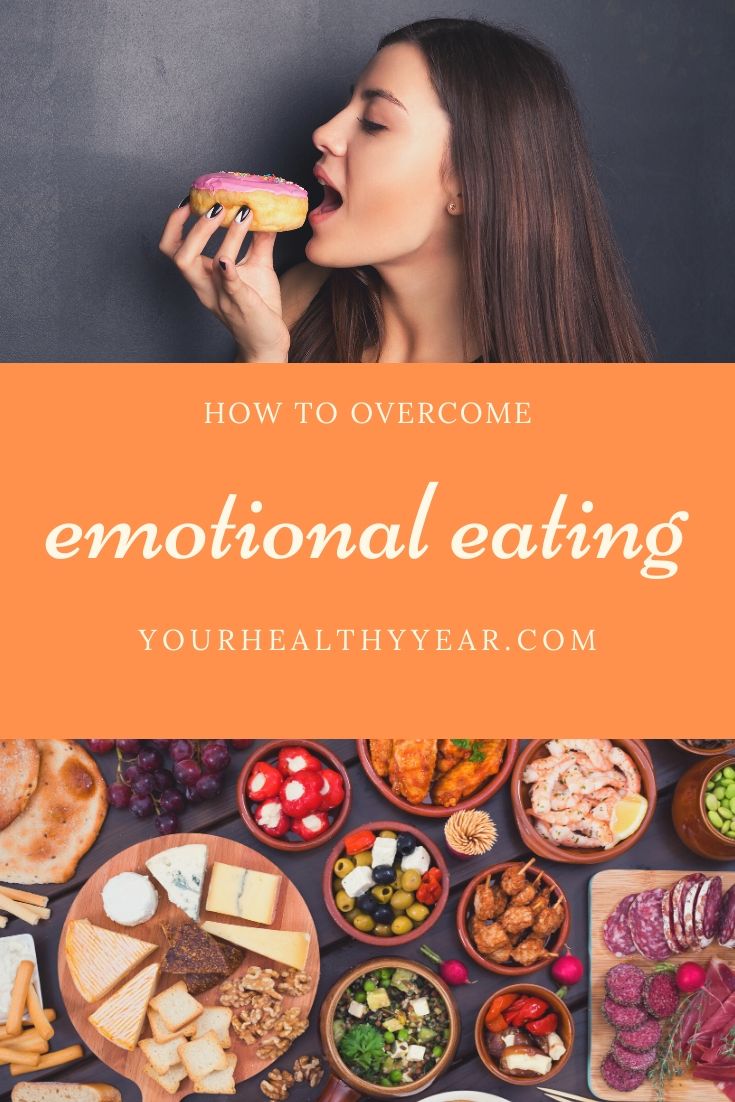Do you tend to fall victim to emotional eating? Some people are stress eaters – they binge on comfort foods when their stress gets out of control. On the other hand, when some people get stressed they lose their appetite altogether, and binge once the stressful situation is over. When you are able to keep your stress under control you can help your weight loss efforts too. Managing stress can help manage your emotional eating.

What is Emotional Eating
Emotional eating is when we eat to satisfy emotions instead of hunger. It’s when we eat because we are stressed, sad, upset, or even to reward ourselves. The foods we tend to grab when emotional eating are often high in calories, sugar and fat.
The problem is, when we eat because we are upset, the food we are reaching for often leaves us feeling guilty and unhappy with our food choices.
Why Are You Emotional Eating?
The first thing you need to do is find out where your stress is coming from. Is it linked to your job, relationships, or money issues? Maybe it is something as simple as taking a look at your schedule and freeing up some time for you. If you are not able to rid the stress in your life by yourself, there are several techniques you can use to help manage your stress.
Next we need to talk about serotonin. Serotonin is a hormone that alters moods and helps you handle stress. If you have low serotonin levels you won’t be able to cope with stress.
If you are plagued with stress you can try a healthy diet filled with:
- Potassium – This will help you relax your muscles.
- Protein – This will help make sure your mind is functioning properly.
- Complex Carbs – This will raise serotonin levels and provide you with energy.
- Vegetables – Veggies will boost your immune system, which becomes weaker when we are stressed.
There are tons of stress-relief techniques out there, you just have to find the one that fits you. Use these techniques along with a healthy diet plan to help ease stress. You can also try hypnosis, meditation, yoga, aromatherapy, and even cardio to help you get through the tough periods.

How to Stop Emotional Eating
Keeping a journal where you can track your moods along with your food choices can help you discover patterns. You may find that there are certain times during the day where you tend to get stressed and you can put steps in place to help stop yourself from grabbing a chocolate bar when you feel the stress. You may also find certain situations that are stressing you out, and once you identify the situations you will be better equipped to recognize and come up with a plan to avoid emotional eating.
Finding patterns in your moods and your food choices can go a long way in making you aware and able to identify the stressors. You may even be able to eliminate the stress completely once you know what is causing you to become upset.
Substituting your junk food for a healthier option is another good way to help curb your unhealthy choices. Instead of keeping chips on hand, make sure you have fresh veggies and maybe some dip. Instead of chocolate, have fruit on hand if you need something sweet.
Practicing Mindful Eating
Probably the best way to stop emotional eating altogether is to practice mindful eating.
You can start by getting rid of all distractions when you eat. Whether it’s a meal or just a snack, put down your phone, and really take the time to enjoy the taste, smells, sight, feel of the food you are enjoying. This will help you enjoy the portion you are eating and help leave you satisfied quicker.
Enjoying your food and the experience of eating it is very important overall. When we take the time to enjoy our food and listen to our body, it’s easier for us to know when we are satisfied and to stop eating before we overindulge.
When you do decide to treat yourself, don’t guilt yourself. Be mindful of how you speak to yourself before and after a decadent treat or meal. Enjoy it, pay attention to your bodies signals letting you know you are full. Enjoying your meal every time you eat is what mindful eating is all about. It helps create balance by telling yourself that it’s okay to indulge a little now and then.

Being Smart About Snacks
When you are feeling like you need a snack, try and keep healthy options on hand, prepared, and ready to go. Rinse and prepare your fruits and veggies so they are easily accessible and ready to eat when you are feeling the need to snack.
If you do decide you want chocolate, don’t shame yourself. Take the time to be mindful and enjoy it, and then move on. You can choose the carrot sticks next time.
Before you pick up a snack at all, ask yourself, are you hungry, bored, or stressed? Drink a glass of water, go for a short walk, distract yourself for a little bit. If you are really hungry, come back and grab something to eat after you have thought about it.
Take It Slow and Be Kind
Chances are, you didn’t start bad habits overnight. Sometimes emotional eating creeps up on us, some of us have been doing it for years, and sometimes it’s a learned behavior from a parent or guardian.
Undoing these bad habits won’t happen overnight and it will take time to replace them with good habits. It’s important that you aren’t too hard on yourself as you transition.
If you feel like you still need help with emotional eating, I encourage you to reach out to a professional who can help you. Someone like your doctor, a therapist, counselor, or even a dietitian. They can all help you overcome emotional eating.
